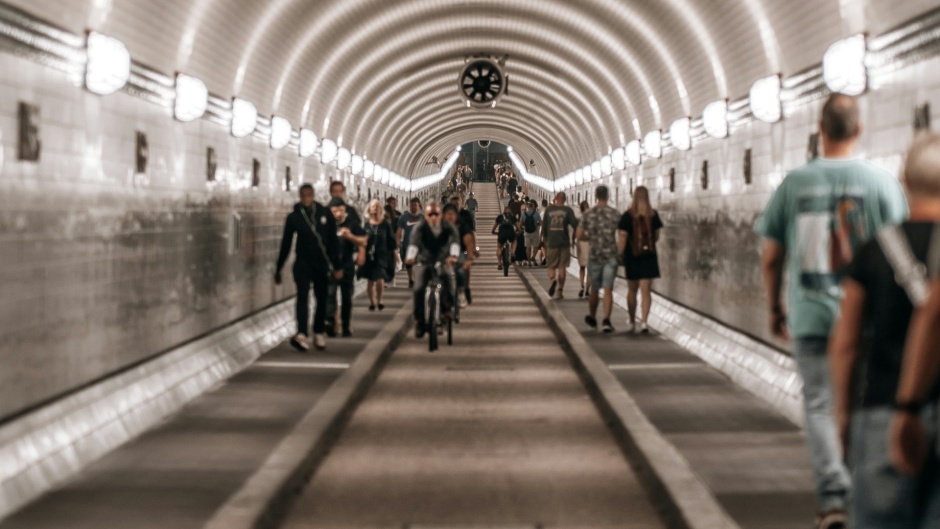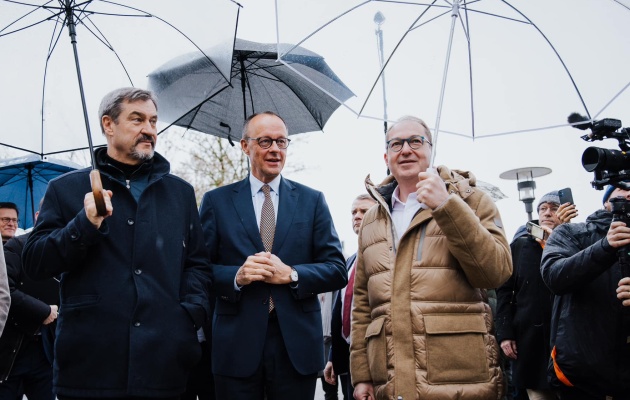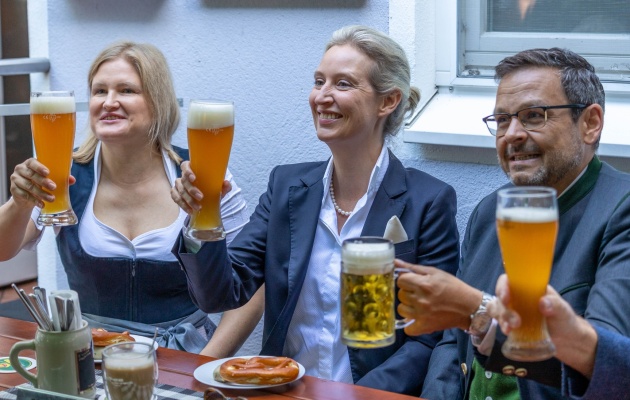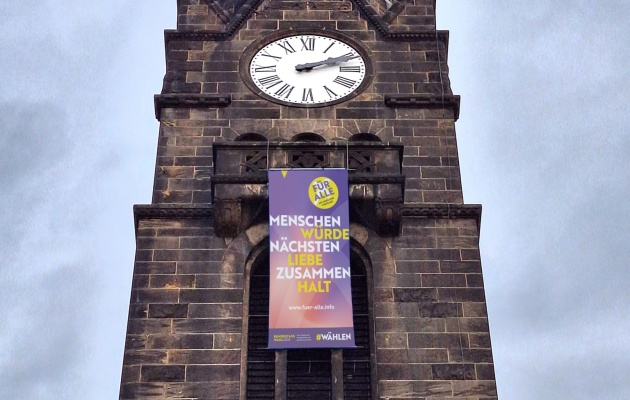In Germany, there is “economic insecurity and a lost belief in progress”
The 23 February election could turn frustration into a historic rise of the far right. A journalist points to the importance of “acknowledge other opinions and not immediately condemn them”.
BERLIN · 15 JANUARY 2025 · 10:26 CET

Germany looks set to change course very soon.
The parliamentary elections on 23 February are just around the corner, and they come against a backdrop of widespread uncertainty among the population, with discontent over the stagnating economy, tension over immigration, and the rise of a hard-line nationalism that revolts against the trajectory the European Union.
Is there a sense of uncertainty about the future among the people? We asked Nico Franz, journalist for PRO Medienmagazin. “Yes, and to a very high degree”, he replies. “Economic insecurity, fear of war, and a lost belief in progress dominate society. People feel that Germany is declining rather than prospering”.
There are all sorts of examples to explain the frustration of large parts of the population in a country that has often been described as Europe’s locomotive. “The Deutsche Bahn [national railways] runs late if at all, pragmatic solutions are lacking in many areas, bureaucracy and pointless laws are stifling, the automotive industry is faltering, the Bundeswehr [army] is underfunded, and work hardly pays off because those receiving welfare have nearly the same amount of money at their disposal”, describes Franz.
Immigration seen as biggest problem
A survey a few days ago published by the public broadcaster ARD says citizens point to immigration (37%) and the economy (35%) as the main problems in Germany. The effects of migration is a recurrent topic of debate in a country with more than 10 million foreigners, but something seems to have broken down, especially after the terrorist attack at a Christmas market one month ago.
“The initial ‘welcome culture’ from 2015 has given way to strong scepticism and a sense of being overwhelmed”, the journalist explains. “The attack on visitors to a Magdeburg Christmas market likely contributed to this. According to police findings, it was an Islam-critical Arab who murdered the innocent people there”.
Now, many would agree that it is “difficult to integrate so many people from cultures that often live by completely different values than those here”. This has led the main conservative party, the Christian Democratic Union (CDU-CSU) of former chancellor Angela Merkel, which has spent the last few years in opposition, to “push for a stricter migration policy, including border controls and more deportations”.

Candidate Merz of the CDU-CSU, in the middle, leads the surveys to become Germany's next chancellor. / Photo: Facebook F. Merz.
The AfD as a protagonist in the midst of the tension
Friedrich Merz, the Conservative party’s candidate, will in all likelihood be the next chancellor, but he will have to form a coalition. The Ampel (‘traffic light’) coalition, a progressive led by the Social Democrat Olaf Scholz for only three years, fell apart before its time. The most probable scenario after the Germans elect a new parliament in February is a Grosse Koalition (‘large coalition’) that moves toward conservatism.
But the big headlines, at least in the international press, go to the rise of the radical right-wing nationalist AfD (Alternative for Germany), led by the controversial Alice Weidel.
Strong especially in eastern Germany, where there is higher unemployment and a greater sense of disaffection with the ‘elites’, the AfD is betting on leaving the Euro currency and has openly defended its plans for ‘remigration’, a very controversial term defining the plans to send back to their country immigrants who have arrived in Germany in recent years from other parts of the world.

Alice Weidel, leader of the Afd, waits for her moment to strongly influence Germany's politics. / Photo: Facebook A. Weidel. “The AfD manages to pick up on allegedly suppressed opinions and offer a home to the dissatisfied”, explains Nico Franz. In a context where the established media have often repeated government slogans and social media spread conspiracy theories, “it is important to acknowledge other opinions and not immediately condemn them”, he says. Neverthless, “dissent is also necessary when boundaries are crossed”.
It is this sense of a lack of freedom of expression, especially among those whose ideas are not aligned with progressivism, that could have given wings to positions defending German identity, the traditional family or opposition to aid to Ukraine in the war with Russia.
Progressivism “suffers the consequences” of its policies
With a virulent and aggressive discourse, in the street and in the Bundestag (the federal parliament), the AfD has become the second force in Germany, with 20% of voting intentions, ahead of the three governing parties in the legislature that is coming to an end.
Its sympathies for Donald Trump’s worldview and the explicit support of US tycoon Elon Musk have given the party of Alice Weidel disproportionate publicity.
For the journalist of PRO, “the best counter to populists is competent and honest policymaking that focuses on people’s needs”. But the government led by chancellor Scholz “has performed poorly in many policy areas”.
“In niche areas like transgender policies or abortion, however, the Ampel government was meticulous and professional”, he adds with irony. “Now, these parties are facing the consequences”.
Christian efforts against extremism
In this even more polarised context than in previous elections, the two historic Church institutions in Germany have come together to call for voting with “heart and mind (...) if we want to find good answers to complex questions”.

A church in Germany with a poster of the Für Alle initiative. / In a document called Für Alle (‘For all’), the official Protestant Church (EKD) and the Roman Catholic Church express their “commitment to human dignity, charity and cohesion. We stand up for democracy and against extremism. We are committed to that our thoughts and actions are geared towards the well-being of all people”.
This should be interpreted, observes Franz, as “a call not to vote for certain parties: especially the partly far-right AfD, but perhaps also the newly founded populist BSW”.
Meanwhile, the German Evangelical Alliance (EAD) calls for prayer for the federal election, emphasising human dignity and the need to protect democracy. Evangelical Focus will publish an interview with EAD leader Frank Heinrich in the coming days.
“Among evangelical Christians, the sanctity of life continued to be a major concern”, concludes Nico Franz. “Left-wing members of parliament are trying to largely liberalise abortion in Germany, they made it an election issue. Conservatives oppose this outright”.
One more year
Learn all about our #OneMoreYearEF campaign here (English).
Published in: Evangelical Focus - europe - In Germany, there is “economic insecurity and a lost belief in progress”
